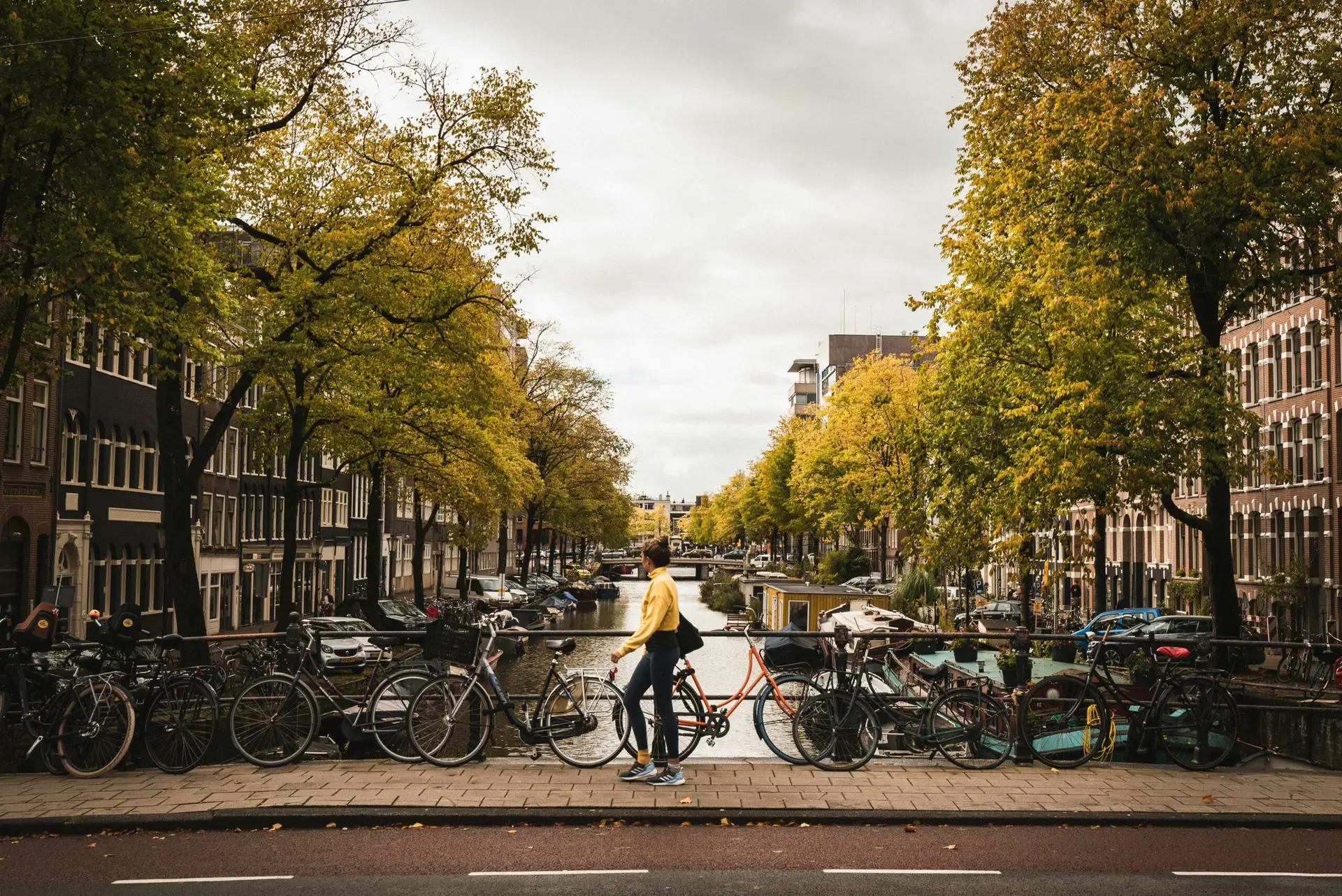
A Personally Selected List of 13 Best Dutch Books
A Personally Selected List of Best Dutch Books Dutch literature, although often overlooked compared to its European counterparts, brings a unique perspective to world literature.
The Netherlands is a country located in Western Europe, bordered by Germany, Belgium, and the North Sea. It is known for its vibrant culture, progressive policies, and picturesque landscapes. The culture is characterized by traditional practices, such as cycling, windmills, and cheese making. It has a diverse culinary tradition, with dishes featuring seafood, meats, and cheeses. Some popular Dutch dishes include stroopwafels (syrup waffles), bitterballen (deep-fried meatballs), and herring.
The Netherlands is also known for its picturesque landscapes, including tulip fields, canals, and windmills. The country is home to many famous landmarks and attractions, such as the Van Gogh Museum in Amsterdam and the Keukenhof Gardens.
“The Discovery of Heaven” is a novel by Dutch author Harry Mulisch. The book tells the story of two friends, Max Delius and Onno Quist, who are brought together by a divine plan to father a child who will change the world. The novel explores themes of friendship, love, religion, philosophy, and the role of human beings in the universe. It is a complex work that weaves together elements of magical realism, historical fiction, and philosophical inquiry. The novel has been widely praised for its intellectual depth, beautiful prose, and imaginative storytelling.
“Hersenschimmen” (translated as “Out of Mind” or “The Vanishing”) is a novel by Dutch author J. Bernlef. The book tells the story of Maarten Klein, an elderly man who begins to suffer from Alzheimer’s disease and gradually loses his sense of reality and memory. The novel explores the experience of living with dementia from Maarten’s perspective, as he struggles to understand and navigate his changing world. It is a poignant and powerful portrayal of the devastating effects of the disease on the individual and their loved ones. The novel has been widely acclaimed for its sensitive treatment of the subject matter, its poetic language, and its profound insights into the human condition.
“The Darkroom of Damocles” is a novel by Dutch author Willem Frederik Hermans. The book tells the story of Henri Osewoudt, a Dutch resistance fighter during World War II who becomes embroiled in a web of deception and betrayal. Henri is recruited by a man named Dorbeck, who resembles him physically and shares his anti-Nazi views. Dorbeck sends Henri on a series of dangerous missions, but as the war comes to an end, Henri begins to question Dorbeck’s existence and his own sanity. The novel explores themes of identity, truth, and the nature of heroism. It is a gripping and suspenseful work that delves into the psychological complexities of war and its aftermath. The novel has been widely praised for its intricate plot, vivid characterizations, and insightful commentary on human nature.
“
“The House of the Mosque” is a novel by Iranian-Dutch author Kader Abdolah. The book tells the story of a family living in Iran from the 1960s to the early 1980s, during a period of political and social upheaval. The family is led by Aqa Jaan, the head of a prominent mosque and a respected member of the community. The novel explores the tensions and conflicts within the family and the wider society, as traditional Islamic values clash with the forces of modernization and secularization. The book also delves into the history of Iran, including the events leading up to the Iranian Revolution of 1979. The novel is a powerful portrayal of the complexities of Iranian society and the struggle for personal and political freedom. It has been widely praised for its lyrical prose, vivid characterizations, and sensitive treatment of cultural and historical themes.
“Tirza” is a novel by Dutch author Arnon Grunberg. The book tells the story of Jörgen Hofmeester, a middle-aged Dutch publisher, and his relationship with his youngest daughter, Tirza. Set against the backdrop of contemporary Dutch society, the novel explores themes of love, loss, and obsession, as Jörgen becomes increasingly fixated on his daughter and the choices she makes. The book also delves into the larger cultural and social issues of the Netherlands, including immigration, terrorism, and globalization. The novel is a compelling and thought-provoking work that has been widely praised for its nuanced portrayal of complex characters and its incisive commentary on contemporary society.
“Zwartboek” is a Dutch war drama film directed by Paul Verhoeven. The story is set during the end of World War II and follows a young Jewish woman named Rachel Stein, who joins the Dutch resistance after her family is killed in a Nazi bombing. She infiltrates the Gestapo headquarters in order to gather information and seek revenge, but she soon finds herself in a dangerous situation as she becomes emotionally involved with a high-ranking German officer. The film explores themes of loyalty, betrayal, and morality in a time of war.
“The Assault” is a Dutch movie that tells the story of Anton Steenwijk, a young boy who witnesses the murder of a Dutch collaborator and his family during World War II. The traumatic event has a profound impact on Anton’s life, and the movie follows his journey as he tries to come to terms with what he saw and experienced. As he grows up, Anton becomes increasingly obsessed with the events of that fateful night, and eventually, he sets out to uncover the truth about what really happened. Along the way, he discovers some shocking secrets and must confront some difficult truths about himself and his family.
“Antonia’s Line” is a Dutch movie directed by Marleen Gorris. The film is set in a rural village in the Netherlands and tells the story of Antonia, a strong-willed woman who returns to her hometown after World War II and creates a matriarchal community of women. The movie explores themes such as love, family, sexuality, and feminism, and it won the Academy Award for Best Foreign Language Film in 1996, making it the second Dutch movie to win this award after “The Assault” in 1987.
“Borgman” is a Dutch psychological thriller film directed by Alex van Warmerdam. The story follows a mysterious vagrant named Borgman, who arrives at the doorstep of a wealthy suburban family and insinuates himself into their lives. At first, he appears to be a harmless and charming individual, but as time passes, his intentions become increasingly sinister and the family begins to unravel in unexpected ways. The film explores themes of class struggle, societal decay, and the dark side of human nature. It has been described as a surreal and enigmatic tale that defies easy categorization.
“Soldaat van Oranje” is a Dutch war drama film directed by Paul Verhoeven. The story is based on the true experiences of Erik Hazelhoff Roelfzema, a Dutch student who becomes involved in the Dutch resistance during World War II. The film follows Roelfzema and his friends as they navigate the dangerous and unpredictable world of espionage, sabotage, and underground warfare against the occupying German forces. The film explores themes of courage, loyalty, and patriotism in the face of extreme adversity. “Soldaat van Oranje” is widely regarded as a classic of Dutch cinema and is notable for its epic scope, realistic depictions of wartime experiences, and strong performances by its cast.
The Netherlands has a rich and diverse musical culture that reflects its vibrant history and multicultural influences. Traditional Dutch music includes a variety of genres, such as folk music, classical music, and jazz. Folk music in the Netherlands is characterized by its use of traditional instruments such as the accordion, fiddle, and mandolin. Dutch folk songs often tell stories about the country’s history, culture, and daily life.
Classical music has a long tradition in the Netherlands, with famous composers such as Jan Pieterszoon Sweelinck and Willem Pijper hailing from the country. The Netherlands is also home to several world-renowned orchestras, including the Royal Concertgebouw Orchestra.
Jazz has been popular in the Netherlands since the 1920s, with Dutch musicians making significant contributions to the genre. The country hosts several jazz festivals, including the North Sea Jazz Festival, which attracts musicians and fans from around the world.
In addition to traditional music, the Netherlands has a thriving contemporary music scene, with artists experimenting with new sounds and styles. Dutch musicians draw influences from various genres, such as pop, rock, and hip hop, while still incorporating traditional elements.

A Personally Selected List of Best Dutch Books Dutch literature, although often overlooked compared to its European counterparts, brings a unique perspective to world literature.

